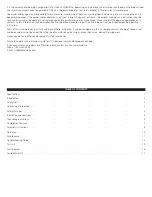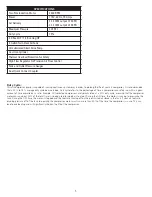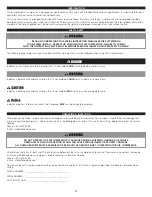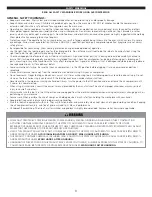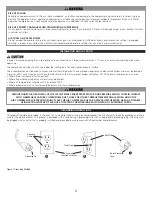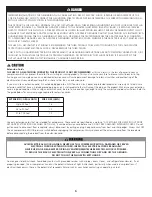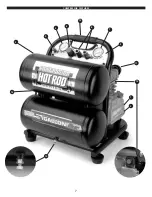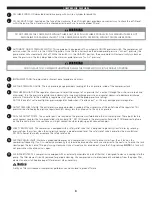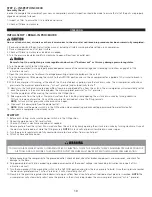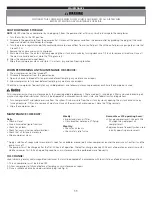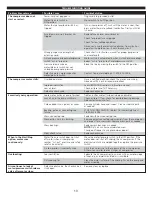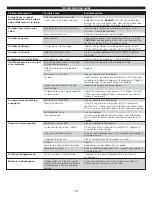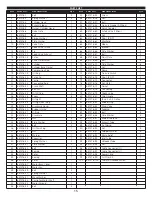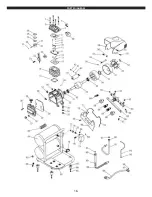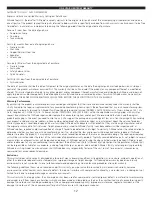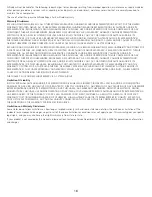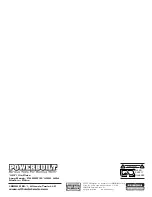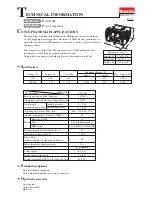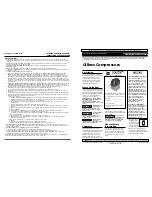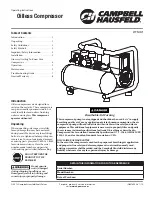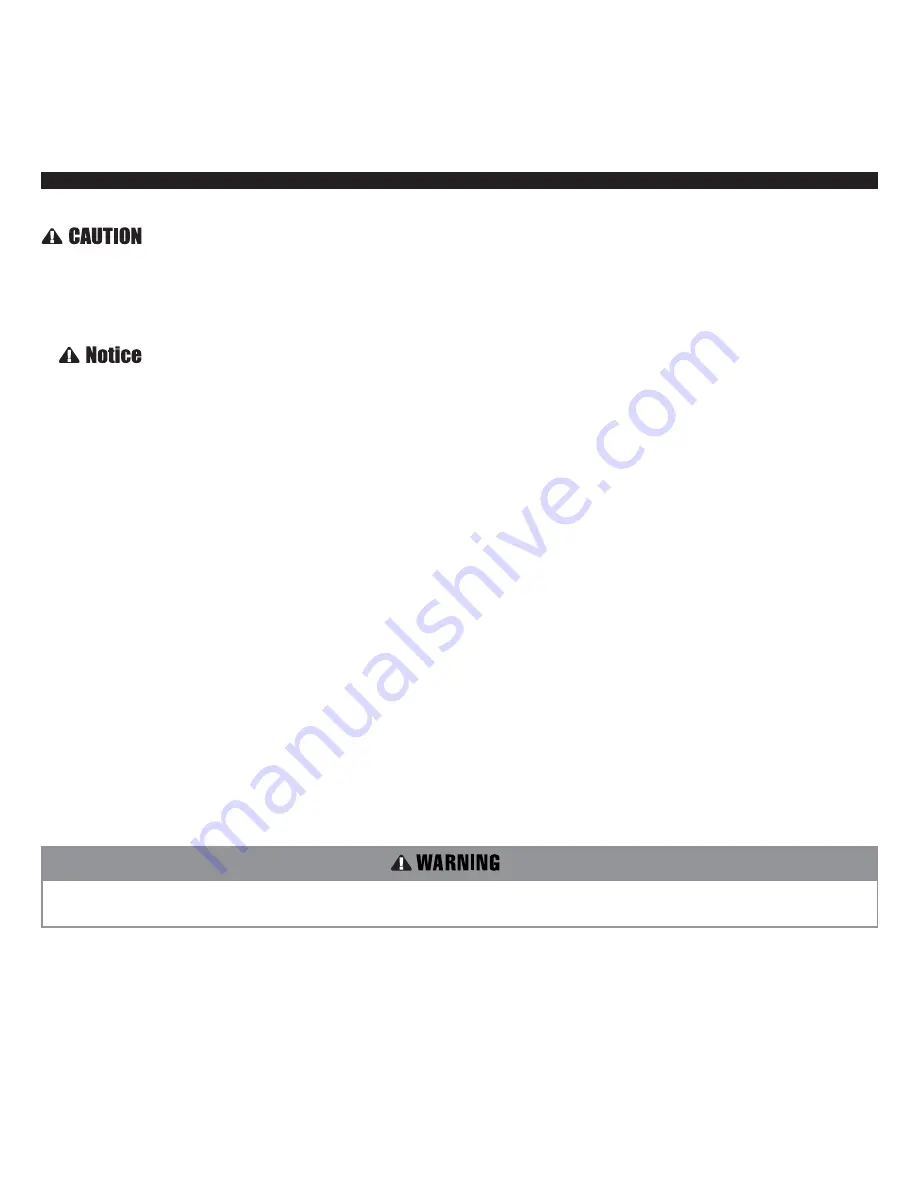
STEP 2 – INSPECTION CHECK
Assembly Check:
In order to complete the assembly of your new air compressor, a careful inspection should be made to ensure that all of the parts are properly
aligned and securely fastened.
1. Inspect air filter to ensure that it is installed and secure.
2. Check oil fill level in crankcase.
OPERATION
INITIAL SETUP / BREAK-IN PROCEDURE:
Do not attach air hose, air tools or other air accessories to the air outlet until break-in procedure has been successfully completed.
1. Read and understand the entire instruction manual, including all safety warnings before setting up air compressor.
2. Place air compressor on a flat, level surface.
3. Check oil fill level in crankcase and add oil as needed.
4. Turn the pressure regulator knob fully clockwise to open airflow from air outlet port.
Be careful not to overtighten pressure regulator knob when it “bottoms out” as this may damage pressure regulator.
5. Turn the power switch to the OFF position.
6. Plug power cord directly into a properly grounded power source of the correct voltage (see Grounding Instructions on page 5 of this
instruction manual).
7. Open the tank drain valve to allow air to escape preventing air pressure buildup in the air tank.
8. Turn the compressor ONby moving the switch to the AUTO/ON position and run the air compressor for a period of 20 minutes to break-in
the air pump.
9. With the compressor still running, at the end of the 20-minute break-in period, close the tank drain valve. The air compressor will build air
pressure to the maximum preset pressure (“cut-out” pressure) and automatically shut off.
10. Slowly turn the tank drain valve to open airflow from drain and bleed off air from the air tank. The air compressor will automatically restart
once the pressure in the air tank drops below the minimum preset pressure (“cut-in” pressure).
11. Turn the compressor off by moving the switch to the OFF position.
12. Release pressure from the system. Drain moisture from the air tank by slowly opening the air tank drain valve by turning clockwise.
Tilt tank to remove all moisture. Once all the moisture has drained out, close the fitting securely.
NOTE:
Air tank will not pressurize while drain valve is open.
13. Disconnect the power cord from the power outlet.
NOTE:
Make sure the power switch is in the OFF position when connecting or disconnecting power cord from electrical outlet.
14. Your new air compressor is now ready to use.
STARTUP:
1. Before each startup, make sure the power switch is in the OFF position.
2. Place air compressor on a flat, level surface.
3. Check oil fill level in crankcase and add oil as needed.
4. Release pressure from the system. Drain moisture from the air tank by slowly opening the air tank drain valve by turning clockwise. Once all
the moisture has drained out, close the fitting securely.
NOTE:
Air tank will not pressurize while drain valve is open.
5. Turn the pressure regulator knob fully counterclockwise to close airflow from air outlet port.
6. Attach air hose and accessories.
TOO MUCH AIR PRESSURE CAUSES A HAZARDOUS RISK OF BURSTING. CHECK THE MANUFACTURER’S MAXIMUM PRESSURE RATING FOR
AIR TOOLS AND ACCESSORIES. THE REGULATOR OUTLET PRESSURE MUST NEVER EXCEED THE MAXIMUM PRESSURE RATING.
7. Before connecting the compressor to the grounded outlet, check oil level, check for broken components and accessories, and check for
damage to the hose.
8. Plug power cord directly into a properly grounded power source of the correct voltage (see Grounding Instructions on page 5 of this
instruction manual).
9. Turn the compressor ON by moving the switch to the AUTO/ON position and allow the tank pressure to build. Once the air pressure reaches
the maximum preset pressure (“cut-out” pressure) it will automatically shut off.
10.Slowly turn the pressure regulator knob clockwise to open airflow from air outlet port until desired output pressure is reached.
NOTE:
The
air compressor will automatically restart once the pressure in the air tank drops below the minimum preset pressure (“cut-in” pressure).
10


